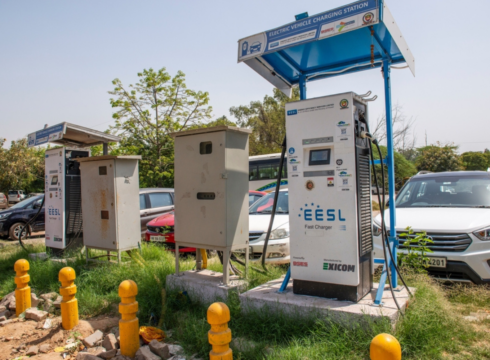The state government said that the new policy would provide 100% road tax and registration fee exemption on all segments of EVs purchased and registered in the state
The policy also has provisions to incentivise setting up EV and battery manufacturing plants in the state, along with charging infrastructure
The policy aims to attract investments of over INR 30,000 Cr in the state and generate direct and indirect employment for more than a million people
Inc42 Daily Brief
Stay Ahead With Daily News & Analysis on India’s Tech & Startup Economy
The Uttar Pradesh government on Thursday (October 13) released the New Electric Vehicle Manufacturing and Mobility Policy, 2022 to promote adoption of clean mobility solutions in the state at a faster rate and create a conducive ecosystem for adoption of electric vehicles (EVs).
According to a PTI report, the policy has a three-pronged incentive regime to provide benefits to the consumers of EVs; the EV, battery, and other component manufacturers; and service providers developing charging and swapping facilities, in the form of subsidies.
The state government said that the new policy would provide 100% road tax and registration fees exemption on all segments of EVs purchased and registered in the state during the first three years of the effective period of the policy.
Besides, government employees will also be encouraged to buy EVs.
The policy also has provisions to attract big-ticket investments from EV manufacturers, battery makers, among others.
As per the new policy, a 30% capital subsidy would be provided on investment subject to a maximum INR 1,000 Cr per project to maximum first two ultra mega battery projects investing INR 1,500 Cr or more each for setting up a battery manufacturing plant in the state with a minimum production capacity of 1 GWh, the news agency’s report said.
The policy aims to attract investments of over INR 30,000 Cr in the state and generate direct and indirect employment for more than a million people.
The government will also provide stamp duty reimbursement to manufacturers for setting up integrated EV projects and ultra mega battery projects anywhere in the state. The reimbursement will be at the rate of 100% for setting up such facilities in Purvanchal and Bundelkhand region, 75% in Madhyanchal and Pashchimanchal (except Ghaziabad and Gautam Buddha Nagar district), and 50% in Ghaziabad and Gautam Buddha Nagar districts for mega, large and MSME projects.
In an attempt to incentivise setting up charging and battery swapping infrastructure in the state, the government said it would provide land to the service providers for setting up charging stations. The plan is to provide government land on lease for 10 years at a nominal revenue sharing model of Re 1/kWh.
Overall, this is another major step by the Uttar Pradesh government in contributing to India’s net zero emission target for 2070 and the country’s trillion-dollar economy goal, the state government said.
The new policy with objective goals is released at a time when the country is pushing for EV adoption at a rapid rate and several state governments are also coming up with new incentivising policies or revamping the old ones.
Earlier this year, the Commission for Air Quality Management (CAQM) said that state-wise EV policies across the National Capital Region (NCR) need to be more in sync with each other as the existing ones vary from one another in their approach and scope.
Unlike Delhi and Uttar Pradesh, Haryana’s policy did not have an overall electrification target, the CAQM noted while also pointing out that there was no vehicle segment-wise target for Uttar Pradesh to support its target of rolling out nearly 10 Lakh EVs across all vehicle segments by 2024.
As per government data published in July this year, 13.34 Lakh units of EVs were running on Indian roads, with Uttar Pradesh leading the chart with a total of 3.37 Lakh EVs.
Government think tank NITI Aayog is aiming for EV penetration of 70% in the commercial cars segment, 30% in private cars, 40% in buses and 80% in two and three-wheelers in the country by 2030.
Note: We at Inc42 take our ethics very seriously. More information about it can be found here.


